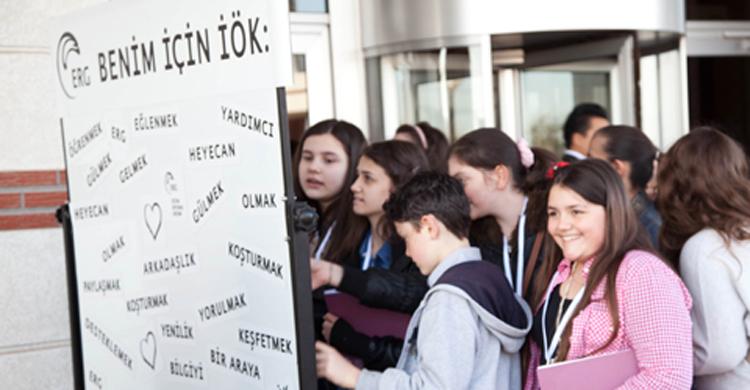27/03/2014
March 3, 2014, Istanbul - Following the adoption of the law making a number of changes in education by the Parliament, the Education Reform Initiative (ERI) draws attention to the urgency of the National Teacher Strategy currently under discussion in the Cabinet, and the risks associated with further delay in the implementation of steps towards a more democratic, high-quality and egalitarian education system.

Changes implemented since 2012, although radical, have had weak focus on quality and equality in education, and do not promise the potential to respond to the critical needs of all education stakeholders, most importantly children. Education policies for providing quality education for all in Turkey must be designed implemented with no further delay, in a medium-term and mutually supportive plan and setting. It is essential that these policies are based on a complete and participatory strategy, and are implemented in a student-focused way to improve education quality and alleviate inequalities. It must also be ensured that the new law does not hinder a number of ongoing projects and programs, and cause a loss of knowledge and experience within the Ministry.
The fact that the National Teacher Strategy, the first draft of which was issued in November 2011, is still not implemented thwarts efforts towards increasing education quality. The implementation of the strategy with the support of teachers and faculties of education must be a top priority in the education agenda. Additionally, the urgent completion of Teacher Competencies, School-Based Professional Development and Primary School Standards programs and projects, which promise great potential towards increasing the quality of education in Turkey, are critically important to provide tangible and observable contributions to the learning processes of children.
For as long as we are unable to provide quality education in a democratic environment in Turkey and fight against inequalities in education, we are not only unable to respond to the basic needs of children, but we are also creating immense social and economic risks for our future. It is imperative that education is rescued from the turbulent environment of increasing political divides, and steps are taken to ensure national consensus on this subject. ERI's expectation from decision-makers is the development of policies for urgent issues in education through fact-based and participatory processes, and ensure effective implementation. It will be necessary and important for the public to maintain a strong and continuous demand for quality education for all.
Following the elections of June 2011, ERI had shared the Critical Issues in the Education System of Turkey brief with all members of parliament, and had met with some ministers and political party administrators for one-on-one discussions about the issues. The top issues identified by ERI in the brief were 1) Lack of a democratic education environment that safeguards the rights of all children in education; 2) Inequalities in education; 3) Low levels of learning in schooled children; 4) Inability of secondary education to retain youths; 5) Insufficient public education funds to provide quality education to all.
About the Education Reform Initiative:
Education Reform Initiative (ERI) mobilizes a wide range of stakeholders in research, advocacy, and training to attain its goal of “quality education for all.” Launched within Istanbul Policy Center at Sabancı University in 2003, ERI aims to improve education policy and decision-making through participatory and fact-based education policy processes. ERI hosts the Best Practices in Education Conference, and issues an annual Education Monitoring Report to assess developments in education and share findings with the public. ERI is supported by Mother and Child Education Foundation, Aydın Doğan Foundation, Bahçeşehir University, Borusan Kocabıyık Foundation, Elginkan Foundation, Enerji-Su, Enka Foundation, İstanbul Bilgi University, İstanbul Kültür University, Kadir Has Foundation, Mehmet Zorlu Foundation, MV Holding, Nafi Güral Education Foundation, Sabancı University, The Marmara Collection, Association of Private Education Institutions, Vodafone Foundation of Turkey, Vehbi Koç Foundation and Yapı Merkezi.





